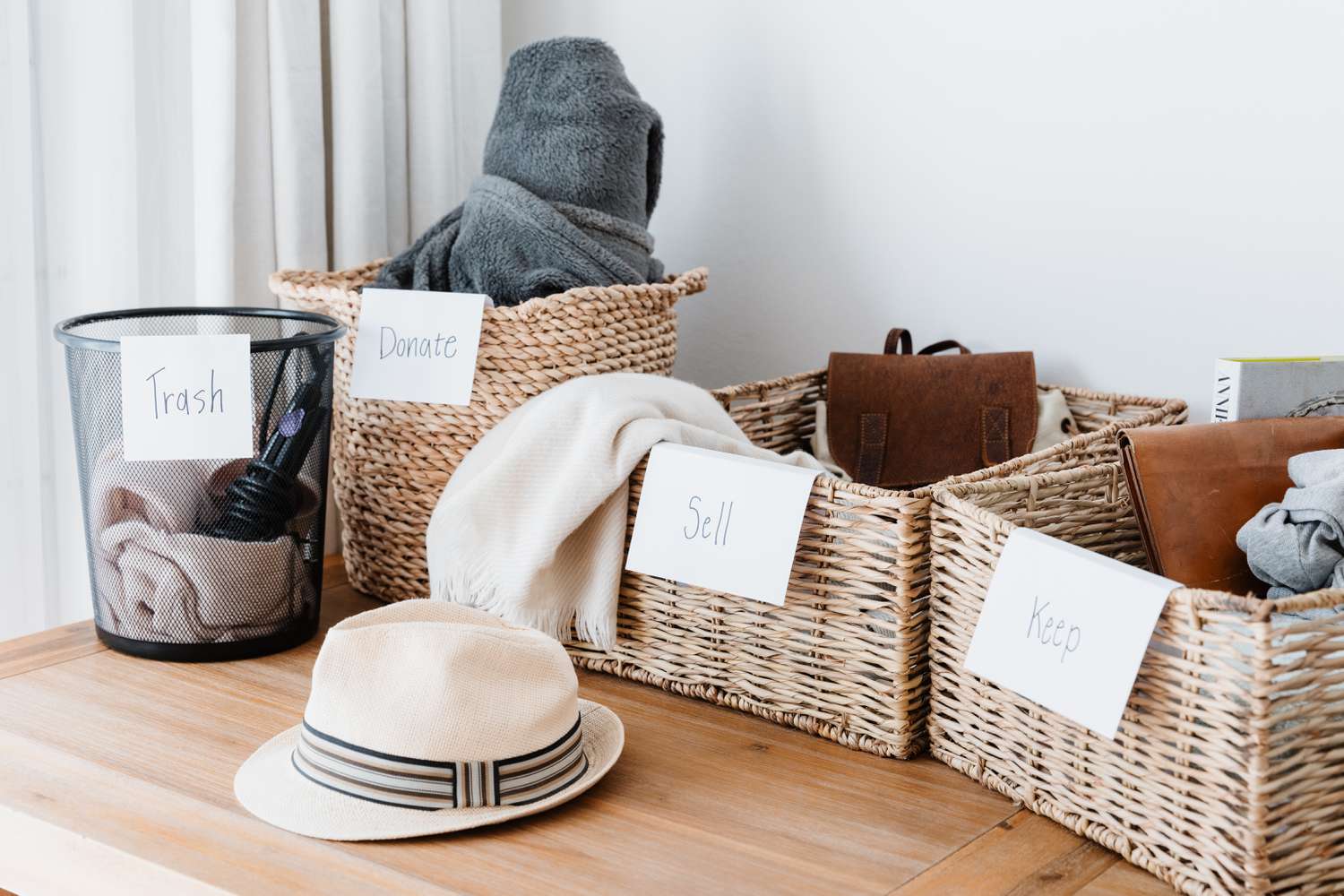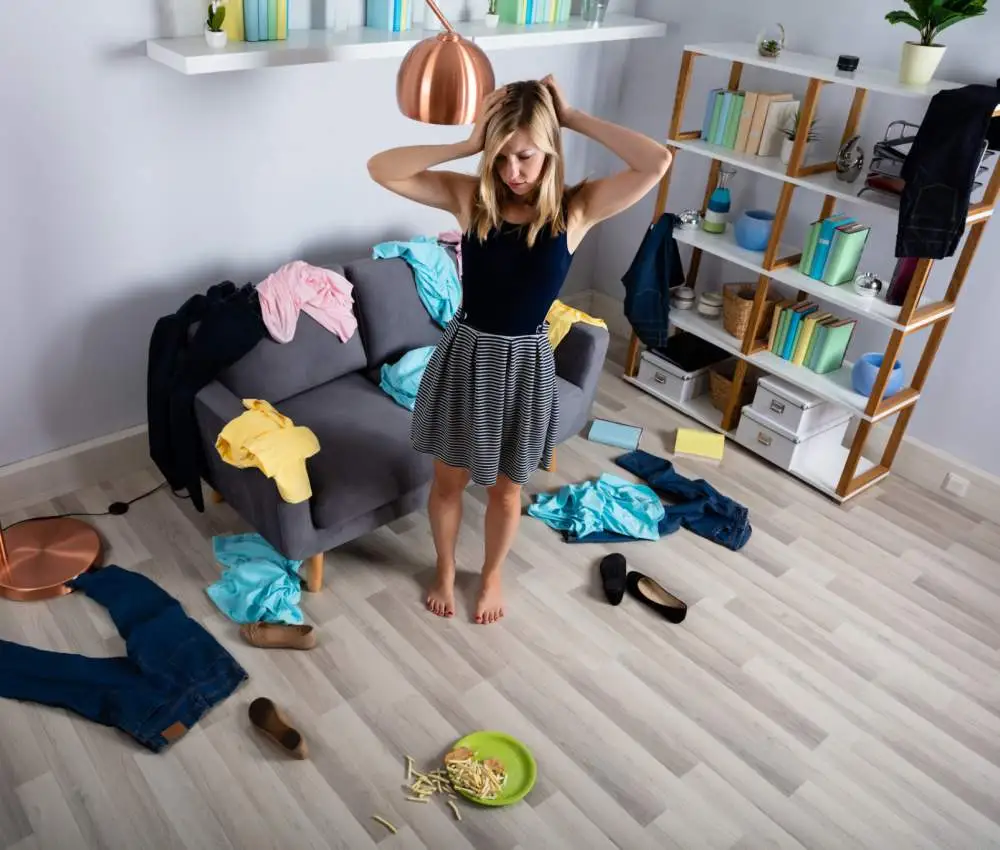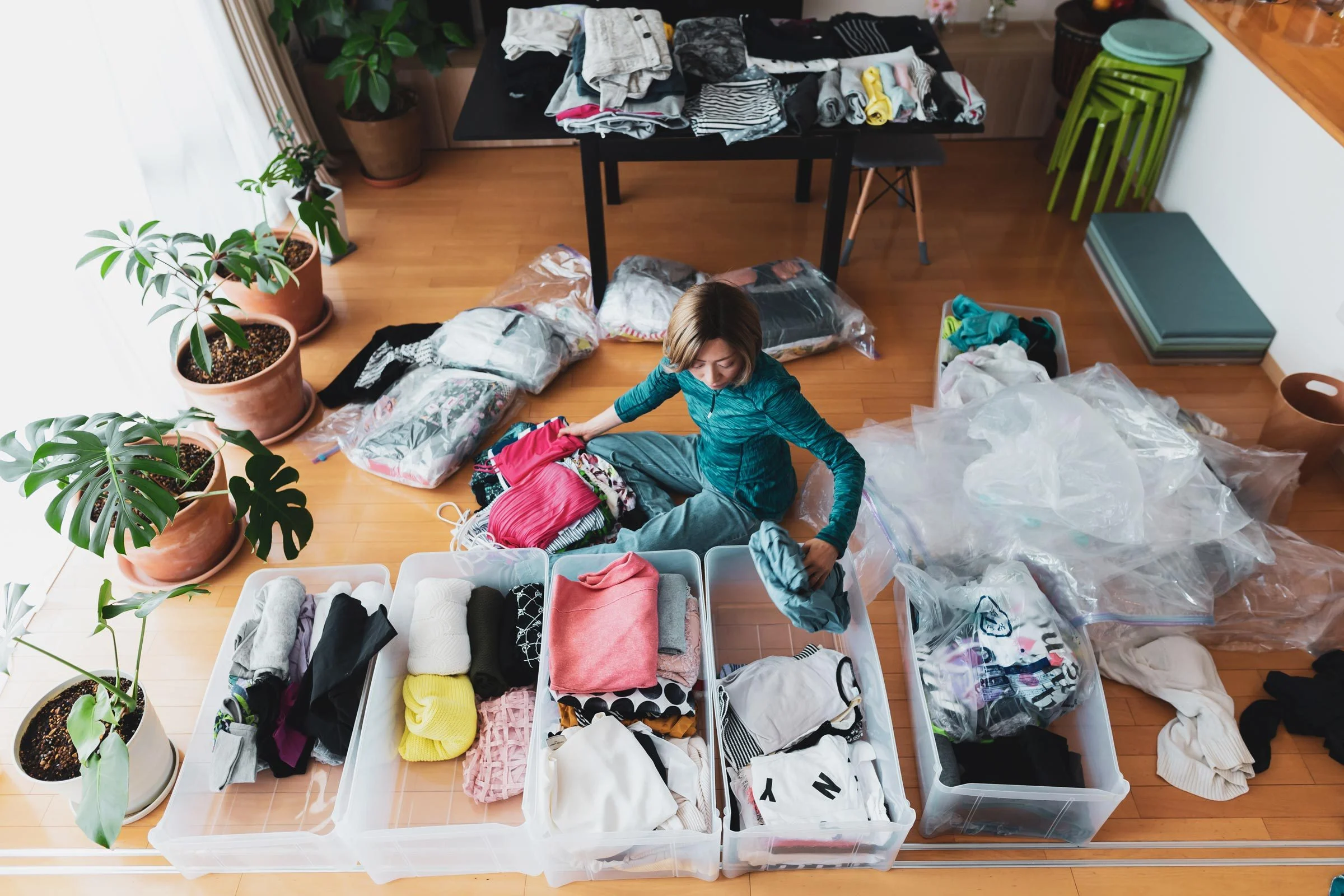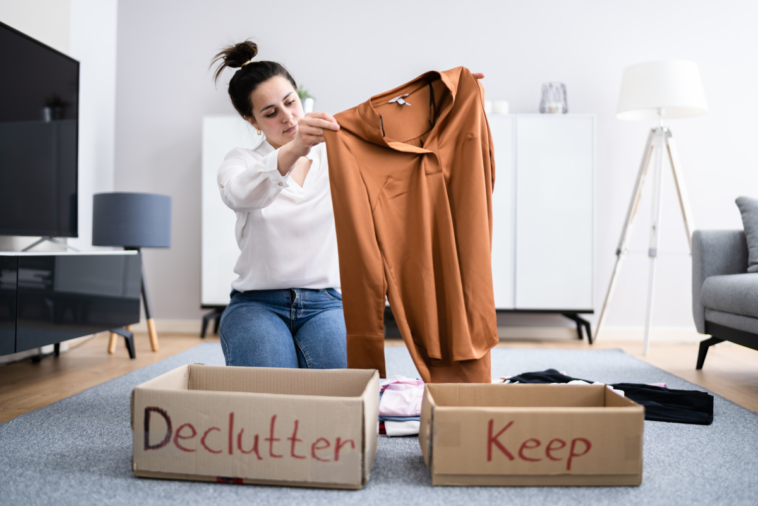Do you love the idea of an uncluttered house but struggle to make it a reality? Perhaps you even declutter occasionally, but every nook and cranny is still overflowing with items. With so much clutter in our living space, keeping it clean and inviting becomes challenging. You can’t move around freely and are embarrassed when people come over. With a cramped and unsightly space, you’re likely unable to enjoy your home either. Clutter not only makes your house look unpresentable but also adds to your stressors, affecting your mental well-being.
However, more and more people are now embracing the minimalist lifestyle. This lifestyle demands incorporating only essential furniture, appliances, and other household items in your house. But with so many belongings to display and maintain, the task can become insurmountable.
So, how exactly does your home keep getting cluttered? Check out these reasons to pinpoint the problem and how to overcome it.
1. Too Much Shopping

Is retail therapy your go-to practice for everything? Perhaps you shop when you’re happy, depressed, or bored. Ponder over your last few shopping trips or impulsive purchases. Were all the purchases really necessary? If they weren’t, you might need to monitor your buying behavior.
Track your monthly expenses and budget accordingly to decide whether recklessly splurging on shopping sprees is viable or not. If you live in a region with a low cost of living, such as Plymouth, you’re probably saving a substantial amount of money which encourages such excessive buying behavior. Plymouth currently boasts a $36,462 living cost per adult, less than the New Hampshire annual living cost.
But if you’ve gathered various items and are worried about what to do with the clutter in your house, storage units might be a worthwhile option. You can rent Plymouth storage units to store your belongings for as long as you want. These well-secured, clean, and remotely accessible storage units are the perfect solution to reduce the clutter in your house.
If you want to control your habit of overspending, try these tips:
- Take cash along; you will hopefully think twice before splurging paper money on extra items
- If you’re going to more than one shopping destination, keep separate cash envelopes for each shop
- Unsubscribe from any promotional marketing, such as newsletters
- Get into the habit of mindful spending; before any purchase, ask yourself if the item will improve your life
- Wait at least 24 hours before making any non-urgent purchases
- Don’t shop when you’re tired or hungry
- Don’t be tempted to buy something just because it’s on sale
2. Stocking Multiples
It’s fine to have a spare bottle of shampoo in your closet. However, some folks might get carried away and buy 20 bottles just because they were on sale. While the product may eventually come in handy, it’s taking up precious space and causing storage problems.
There’s also the chance that you’re just automatically buying shampoo with the monthly shop each month. It pays to check before you buy or order anything like this. If you don’t, the bottles, jars, or other products might make areas more congested over time.
This sort of clutter might be the good kind since it’s not exactly unwanted. The space it takes up is an issue, though. Here’s what you can try to avoid overstocking:
- Check the closets, pantry, and cupboards before shopping for groceries. If you don’t have time for that, snap a few pictures and check them in the store
- Take a look at the storage you have for any excess stuff
- When buying anything extra, stay realistic about how much your family needs
- Don’t stock up on a child’s favorite food of the week since their tastes can change quickly
- If you do get several multiples due to smart couponing, consider giving away some of the products to needy families
3. Not Having a Regular Decluttering Routine

Decluttering is an important part of maintaining a clean and spacious home. It’s not enough to do it when you’ve had enough of the clutter or just once a year during spring cleaning.
Instead, think of decluttering as a regular task that you have to do. If you follow a schedule, decide on a time slot, especially for decluttering. The more time you leave between decluttering sessions, the more clutter builds up.
Regular decluttering sessions– weekly or monthly–can help you stay organized. Think of it like cleaning your home. If you do the task half-heartedly, dust and grime will build up. You’ll have to deal with these issues at some point, so why not prevent them now?
In the same way, consider decluttering now and give your brain an instant therapeutic burst.
4. Having Clutter Blindness
Once you get used to the clutter, you may get used to ignoring it. And you won’t bother about cleaning up unless someone comes over.
Here’s what you can do to help maintain an uncluttered space:
- Try to be present when viewing your home; notice how everything looks and how they might be placed better
- Take a picture of every room and try to view it with a third-person’s eye
- Develop a habit of walking around the home, checking out the space, and considering what it needs
5. You Feel More Secure with Stuff

For some, it’s normal to stack items haphazardly or keep every item within arm’s reach. They love to hug their stuffed animals, have sentimental objects in a drawer, or hold on to every book they’ve read.
While there’s nothing wrong with wanting stuff, it’s unhealthy to keep hoarding stuff. If you have heaps of items you can’t part with, the clutter will never go away.
Here are some ways to overcome such problems, though extreme cases may require professional help:
- Pondering what’s essential and what’s congesting your house
- If you can’t part with specific items, rent a storage unit
- Take a picture of a beloved but useless item–sell it, store it, or give it away
Conclusion
Now that you know why your home might be a clutter magnet, it’s time to make changes. Pinpoint the reasons that seem to be the most relevant to your lifestyle. Changing your priorities and habits can help you maintain a clutter-free home. Many times, the changes only take a few minutes, like writing a list or putting something in storage. With a little effort, you can make your home more inviting, comfortable, and spacious.




